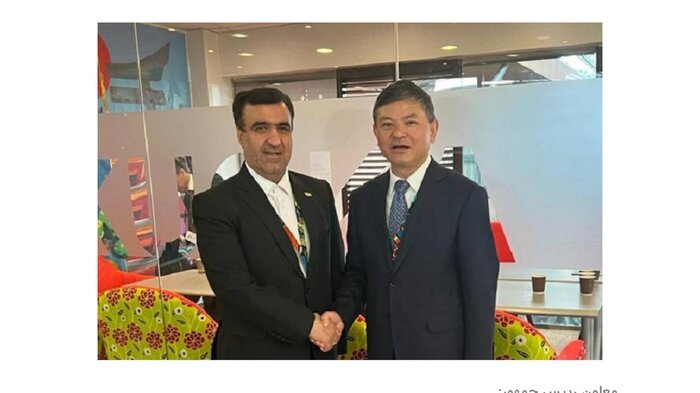Tehran, Beijing agree on forming joint environmental working group

TEHRAN – Iran and China have agreed on boosting cooperation in areas related to the environment through forming a joint working group.
Ali Salajeqeh, the head of the Department of Environment, in a meeting with Huang Runqiu, the Chinese minister of ecology and environment, highlighted the need to exchange information on environmental protection, IRNA reported.
During the meeting which was held on March 17, the two sides also decided to organize meetings in order to share experiences in this regard.
Salajeqeh referred to China’s valuable experiences in managing water resources, combating deforestation, and dealing with climate change, calling for the use of joint capacities to solve environmental problems.
The Chinese official for his part touched on the agreement signed by the two countries in 2012 and said bilateral cooperation has been very positive, laying the ground for future measures.
In July 2023, Salajeqeh took part in the meeting of the ministers of the environment and heads of delegations of the member states of the G-77 plus China, which was held in Cuba.
The G-77 (plus China) was established in 1964 as the largest inter-governmental organization of developing states in the United Nations.
It provides the means for the countries of the South to articulate and promote their collective economic interests, enhance their joint negotiating capacity on all major international economic issues within the United Nations system, and promote South-South cooperation for development.
“Environmental diplomacy is the main priority for the country's political diplomacy, so holding the conference on combating sand and dust storms is important for us,” Salajeqeh said.
President Ebrahim Raisi has highlighted the importance of environmental protection, emphasizing that the preservation of the environment is prior to every development.
Environmental protection will lead to power, security, investment, and production growth in the country, he said.
Tehran conference
An international summit on dealing with sand and dust storms was held in September 2023 in Tehran, a turning point in making serious decisions for implementing sub-regional programs in West Asia and Central Asia.
In a meeting with ambassadors and representatives of the countries participating in the international conference on dealing with SDSs, Salajeqeh said letters of invitation have been sent to the environment ministers of nearly 55 countries that are directly affected by the dust phenomenon.
Climate change with all its dimensions and consequences has caused serious challenges to life on the earth. One of the consequences of climate change, which has increased in intensity and occurrence, is the phenomenon of SDSs with severe harm to the world's biological and economic resources.
According to surveys, 150 countries are affected by SDSs, and most of these countries are located in Africa and Asia.
MG
Leave a Comment